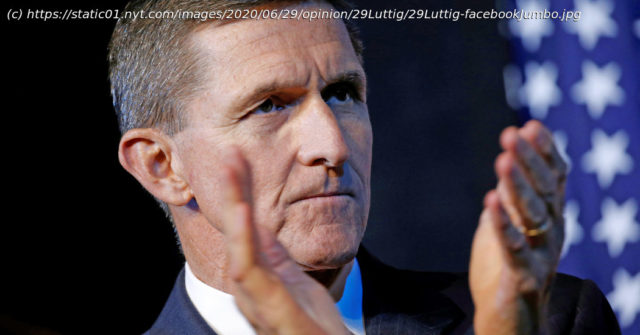The Court of Appeals answered the wrong questions.
There is plenty of confusion around the federal appeals court decision last week that ordered Judge Emmett Sullivan to dismiss the case against Michael Flynn, the former national security adviser accused of lying to the F. B. I.
How could anyone understand the decision given how politicized the case has become? Not even the U. S. Court of Appeals for the District of Columbia Circuit appears to have understood its own case.
The case is important — involving the separation of powers between the executive and the judiciary — and involves a few twists and turns. It started when the government, in a highly controversial move, asked Judge Sullivan for his approval — or his “leave” — to dismiss Mr. Flynn’s prosecution, a requirement under federal rules. Judge Sullivan scheduled a hearing to determine whether to give that approval. Mr. Flynn, in turn, asked the higher court, the Court of Appeals, to dismiss his prosecution now, before Judge Sullivan decides whether to dismiss the case.
In considering Mr. Flynn’s request, the appeals court had before it three simple questions: Does Mr. Flynn have a clear and indisputable right to have his case dismissed — before Judge Sullivan rules? Does he have any other remedy for the harm he may suffer if the case is not dismissed immediately? And last, is ending Mr. Flynn’s prosecution now, before Judge Sullivan rules, “appropriate under the circumstances”?
As it turns out, the Court of Appeals panel decided none of these three questions.
Take the first question. Though it purports to have done so, the court did not decide that Mr. Flynn had a clear and indisputable right to immediate dismissal. Rather, the divided court decided the entirely different question of whether the government would have had a clear and indisputable right to have its prosecution dismissed immediately. “The circumstances of this case demonstrate,” Judge Neomi Rao wrote, that immediate dismissal “is appropriate to prevent the judicial usurpation of executive power.” However, it was not the government that asked the appeals court to dismiss Mr. Flynn’s prosecution before Judge Sullivan ruled. It was Mr. Flynn.
The divided Court of Appeals also purported to, but did not, decide whether Mr.






